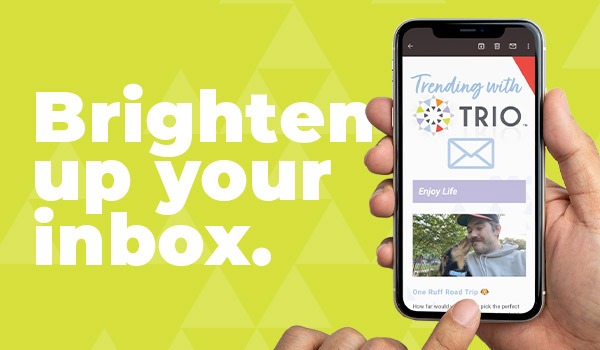The Timeless Symphony of Nostalgia: How Music Elevates Your Brand in Advertising

I have been wanting to write this blog for several months now. At the beginning of the holiday marketing season, which starts around Halloween nowadays, I found myself stopping in my tracks when certain commercials came on. These aren’t just ordinary ads; they feature snippets of songs that serve as time machines, transporting me back to different eras of my life. That’s a powerful tactic marketers use to connect you with their brand, and it works.
With the Super Bowl on the horizon, often hailed as the Holy Grail of advertising showcases, I find this the perfect moment to share some insights. As you immerse yourself in the game’s excitement this year, pay special attention to the commercials. Listen closely to the brands that masterfully harness the power of music to create an unforgettable connection. Undoubtedly, some advertisers will hit this mark with remarkable precision, transforming their spots into memorable moments that resonate long after the game.
Music in advertising is not just a background score. It’s the heartbeat of a brand’s story. The power of a well-chosen song to evoke emotions and create a lasting impression is immeasurable. This is especially true when advertisers tap into the rich well of nostalgia, using tunes that resonate deeply with their audience’s memories and emotions.
Consider Amazon Prime’s Christmas commercial featuring “In My Life” by The Beatles. Man, this one gets me every time. This particular song choice is a masterstroke in evoking a sense of nostalgia. The Beatles, a band that revolutionized music and left an indelible mark on cultural history, connect with multiple generations. When “In My Life” plays, it’s not just a song; it becomes a journey through the listener’s own life, echoing past joys and sorrows, loved ones missed, and inevitably creating a strong emotional bond with the narrative of the commercial.
Similarly, Chevrolet’s use of “I’m Your Captain” by Grand Funk Railroad in their advertisements is another exemplary use of nostalgic music. With its classic rock vibes and era-defining sound, the song instantly transports the listener back to the 70s, a time perhaps reminiscent of youth, freedom and adventure for many in the target audience. Chevy nailed this one to resonate with their target audience.
A few more honorable mentions worth checking out include:
Why Nostalgic Music Works
The effectiveness of these choices lies in the psychological phenomenon of nostalgia.
According to Dictionary.com, nostalgia is a wistful desire to return in thought or, in fact, to a former time in one’s life, to one’s home or homeland, or to one’s family and friends; a sentimental yearning for the happiness of a former place or time.
Music has the unique ability to act as a time machine, transporting us back to specific moments in our lives. When a brand uses a song that has been part of the soundtrack of someone’s life, it not only captures attention but also triggers a cascade of memories and emotions. This emotional connection can be incredibly powerful in building brand affinity and loyalty.
While using popular songs in advertising can be strikingly effective, it’s important to acknowledge the substantial cost of licensing these tracks. This expense can be prohibitively high for small businesses and nonprofits, putting these powerful nostalgic connections seemingly out of reach. However, there’s an alternative pathway that’s been opened up by social media.
Platforms like TikTok and Instagram now allow the use of a vast array of music through their libraries for content creators. This has created a unique opportunity for smaller organizations to leverage original audio clips within their marketing efforts without the hefty price tag of licensing well-known songs. By creatively using these resources, even small entities can craft compelling, music-driven narratives that resonate with their audiences, harnessing the universal language of music to tell their story.
Knowing Your Audience
The key to successfully using music in advertising is understanding your target audience. A song that resonates with one demographic might not have the same effect on another.
For instance, using a hit song from the 80s might work wonders with Gen Xers but might not strike a chord with Millennials or Gen Zers. Conversely, a current viral track on social media might resonate strongly with younger audiences but as much with older generations.
By carefully selecting music that aligns with the preferences and trends of your audience, you can enhance the effectiveness of your marketing message and create a deeper emotional connection with your viewers.
Blast from the Past
The 2023 holiday season gave us some commercial gems, but here are a few blasts from the past worth noting. Let’s take a walk down memory lane.
- Coca-Cola’s use of “I’d Like to Teach the World to Sing” in the 70s. This iconic tune became synonymous with peace, love and unity, aligning perfectly with the brand’s image. Here’s the original commercial from the 70s. Here’s a special nod to the OG 20 years later.
- Apple’s iPod commercials often featured contemporary indie tracks, which appealed to a younger, tech-savvy audience and positioned Apple as a trendsetter in technology and culture. Check out the first iPod commercial from 2001.
- The 2011 Super Bowl commercial featuring Eminem for Chrysler is an incredible showcase of Motor City that you simply can’t watch without feeling the urge to move.
The Balancing Act
While nostalgia can be a powerful tool, it’s crucial for advertisers to balance it with relevance. The song choice should not only evoke nostalgia but also align with the brand’s message and the story being told in the commercial. It’s about creating a harmonious blend of past emotions and present values. That’s where the magic happens.
Final Track
Music in advertising is a bridge to the hearts of the audience. When done right, especially with nostalgic tunes, it can create a deeply emotional and memorable experience, forging a bond between the consumer and the brand that goes beyond the commercial. As advertisers continue to explore the vast landscape of music, both in the traditional sense and now with social media, understanding and respecting the audience’s emotional and cultural background is essential. The right song can turn an advertisement, reel or TikTok into a memorable story and a new follower or stronger connection with your current audience.
Like Pluto said many moons ago, “Music gives a soul to the universe, wings to the mind, flight to the imagination and life to everything.”
Keep reading...
Email Marketing Basics: Harnessing the Power of Direct Communication
Email remains a mighty tool for nonprofits and small businesses. Its ability to directly connect with an audience, coupled with its cost-effectiveness, makes it an invaluable asset, […]

Digital Marketing Specialist
How To Assess the Success of Your Digital Marketing Strategy (And What To Do if It’s Not Performing)
While there’s no denying the allure of a billboard or the power of a print ad, marketing is so much more than that. In today’s fast-paced digital […]

Digital Marketing Specialist

